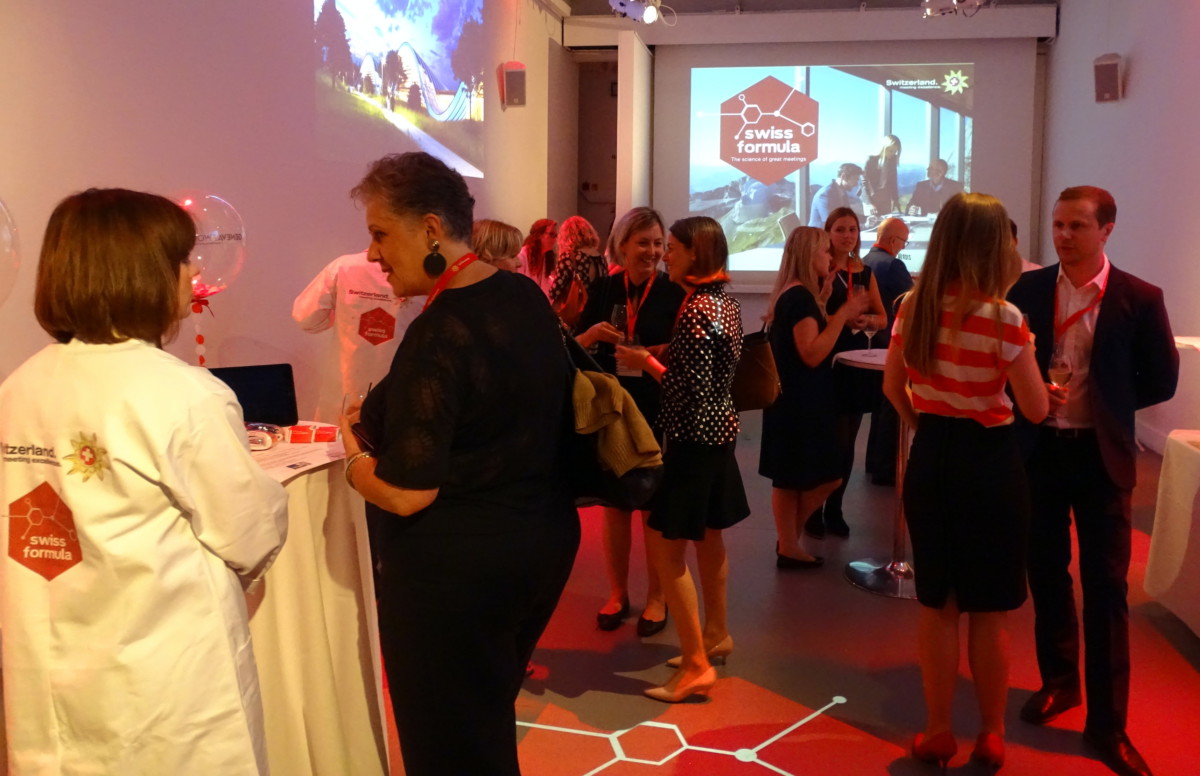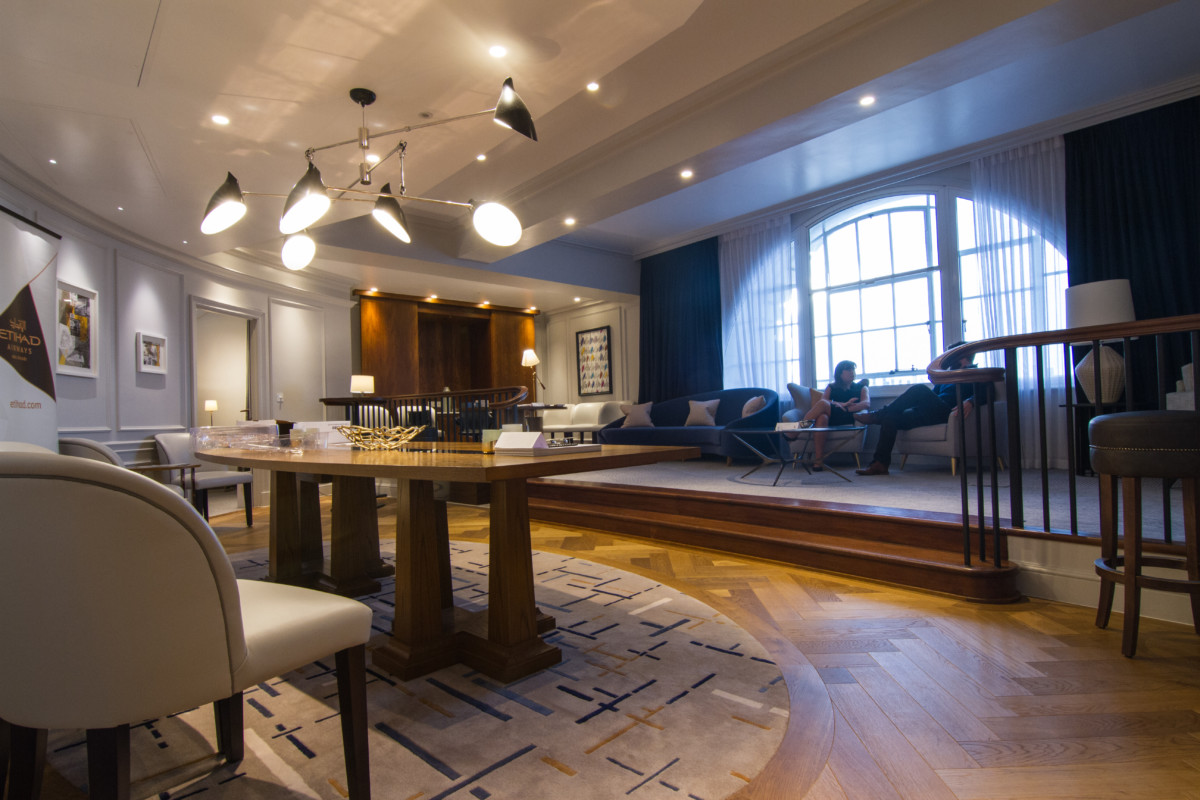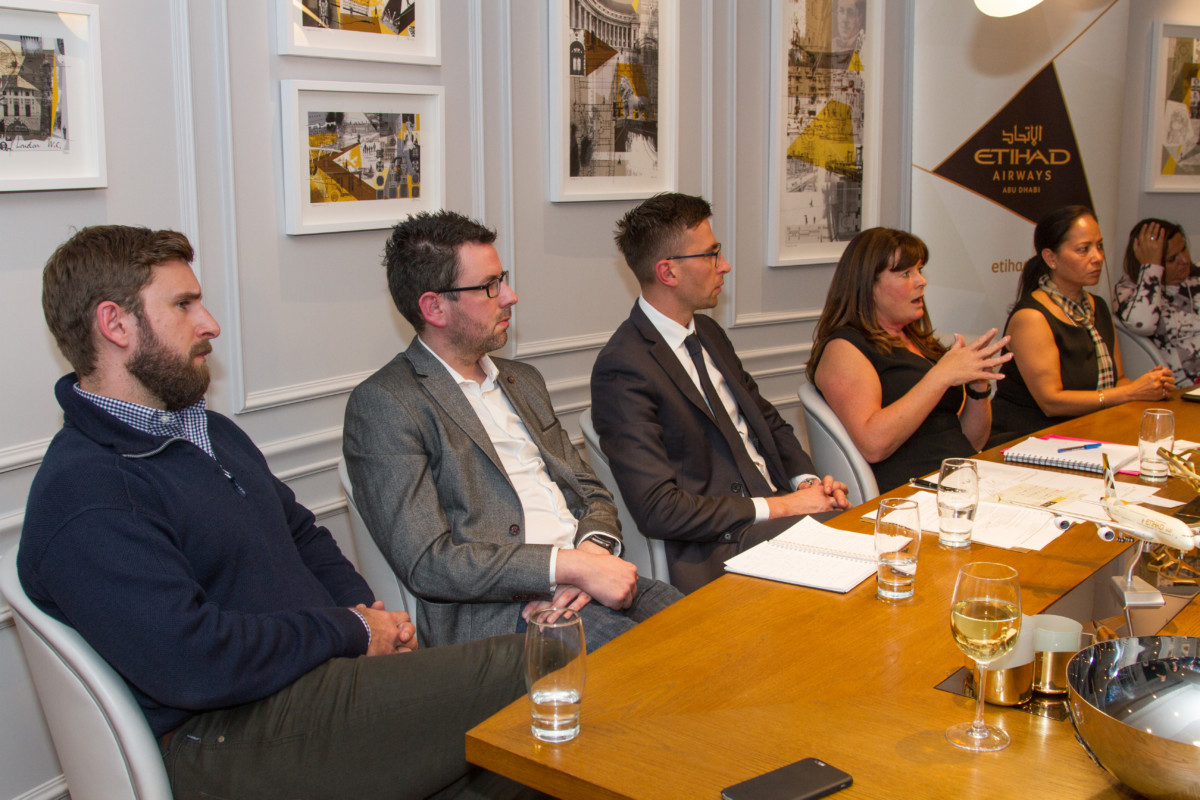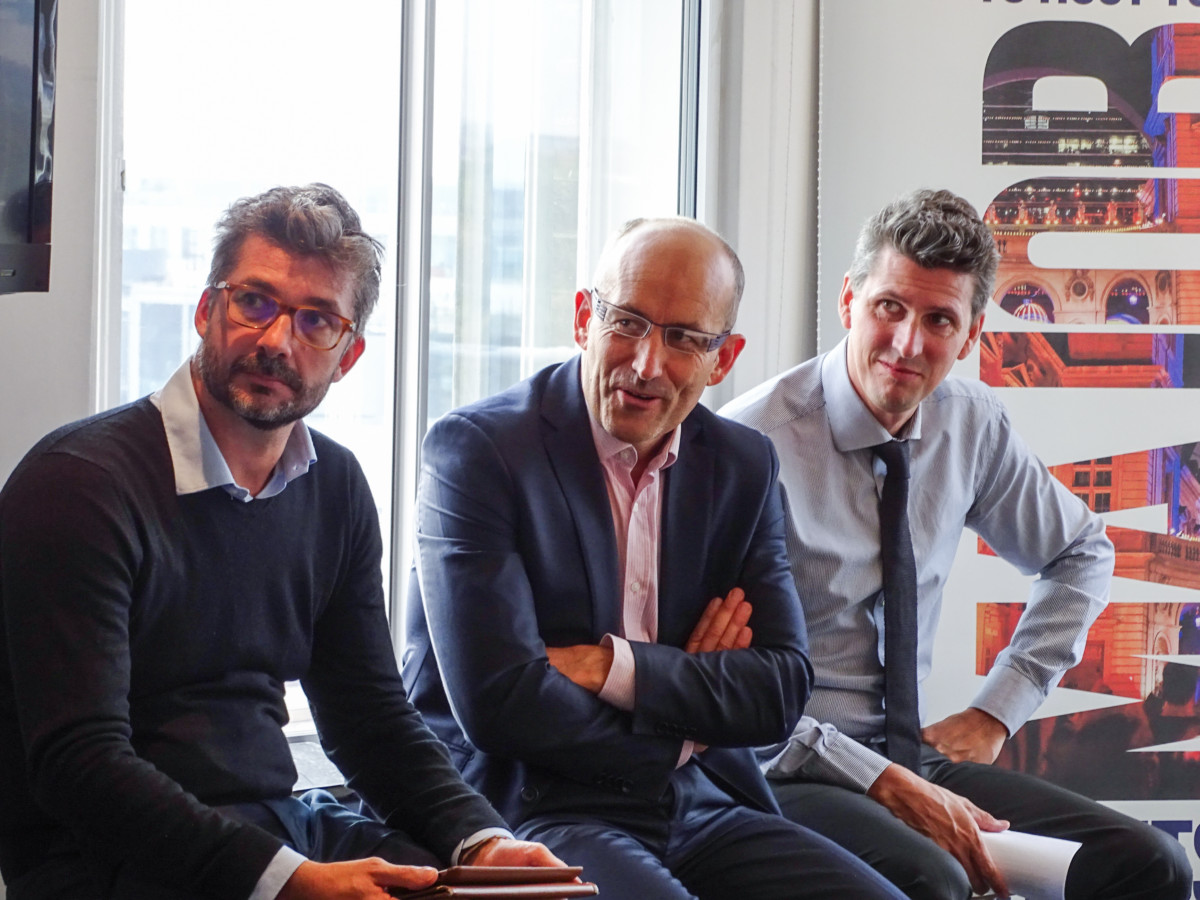The way we network is changing, attendees get savvier and more demanding while sponsors want to see ROI and attract decision makers to their events. How we, organisers facilitate these encounters to meet expectations of both sponsors and attendees?
Instead of offering a networking drinks reception, we planners should think more creatively about how to facilitate networking through experiences and gamification, so that when our attendees return from the event they have not only gained valuable knowledge, but also colleagues they can now call friends.
The latest #EventPlannersTalk, in partnership with Atout France, explored the changing landscape of corporate networking to help and answer these questions and took place at Atout France offices in London. We were very honoured to welcome our speakers from South of France, Côte d’Azur region. Pierre Oudine, Managing director / Co Founder at Raising Stones Events, Emmanuel Zegre, Senior Corporate Sales Manager at Nice Acropolis Convention Centre and Bertrand Puissegur-Ripet, Congress Development Manager at Nice Convention and Visitors Bureau were on the panel which was moderated by Samme Allen, Director at Sequoia Partnership (London based).
Samme moderated brilliantly and put everyone in the audience at ease to get involved in the discussion from the very start.
The purpose of networking
First part of the discussion evolved around deciding what the purpose of the networking was, so that the experience/space/environment/technology can be designed to facilitate the best results. One of the attendees, Gareth Dimelow from LIFTD summarised this part as following:
Forging business connections for future opportunities
Checking understanding of content with other peers and opinion leaders
Creating ambience and comfort – informal socialising to unwind after a content-rich session
Exclusive access to hard-to-reach contacts/guest speakers/VIPs and high profile guests
Informal brainstorming of new collaborative business solutions
One-to-one sales meetings
Organisers’ role in facilitating networking opportunities
Organisers must play major role in facilitating networking opportunities. Networking happens at the event but also outside the learning environment at social gatherings, formal and informal. If you, as an organiser understand this and provide an environment that combines business, relaxation, entertainment, and fun activities you can facilitate opportunities for delegates with different profiles (e.g. – introverts or extroverts) and offer something for everyone.
Not all attendees and organisers like to call networking networking and what is not supposed to be networking, actually is. Bertrand Puissegur-Ripet gave an example of a medical congress where they created a quiz. While being of an educational nature, it put attendees at ease and served as an ice breaker. First attendees exchanged knowledge and ideas and later business cards.
Know delegate profiles
As an organiser, it’s necessary to know delegate profiles and needs. While some delegates like to have small talks others like to “get strait to business”. At each event there must be the right balance between those who are looking and those who are offering (e.g.- hosted buyer programmes).
Emmanuel Zegre suggested that suppliers should be interested in everyone and that it’s important to give and create emotions before business. Kirk Thomas from Athena Events, one of the attendees, added that if someone doesn’t have relevance to you now, it doesn’t mean they might not have relevance to you in the future, so if you streamline networking too much you might alienate people.
One of the attendees suggested that at each event there will be different personalities and that having the right expertise in the room is more important than focusing on networking, because the expertise will attract the right people and networking will happen naturally.
Someone suggested that at each event at least half of the audience will be introverts. So if only half will be able to unlock the opportunities in the room, organisers must facilitate networking opportunities for the other half.
International Live Events Association (ILEA) members who attended the event shared that they manage their networking in a way that they attract people with similar interests and “take the badges off”.
Pierre Oudine emphasised that, in the MICE industry, we must think first of all about ROI and qualify the attendees. Gareth Dimelow added that organisers can pre-vat people who have mutual interest to do business together. Event organisers must have the intelligence about their audience.
Someone asked, how to facilitate networking at very large events, over 3,000 attendees? Bertrand Puissegur-Ripet suggested that there must be a mix between different networking settings, including face-to-face, speed networking, private meetings and social gatherings. Also food and drinks can put people at ease.
We debated the use of alcohol at events. Kirk Thomas mentioned a case study of a financial institution that lost 80% of their audience to the local pub after a lunch break and flagged that attendees might expect alcohol at events. Pierre Oudine on the other hand, shared that he sees a trend towards speakers who promote Zen Living, with no alcohol at events. He added that there is a new rule alcohol companies must comply with which requires to monitor alcohol consumption. It is proven that there are negative side effects associated with over consumption at events, such as people being late or having accidents.
Role of technology
When it comes to technology, one attendee suggested that it doesn’t play big part when attendees meet face-to-face, but pre-event is very helpful to know who is coming to curate content. Technology should be simple and easy to use, such as social media, and it also gives us an opportunity to find lost contacts post-event. Social media saves times to fill-on the daily news so when we meet we can continue and discuss business.
Kevin Jackson from Experience Is The Marketing shared that technology is helpful but we always need a human connection to establish trust. Human relationship is in the heart of every business and live events drive digital activation.
New generation
Ryan Curtis-Johnson from drp suggested that organisers see major shift with the younger generation that prefers following the event online via social media and doesn’t have time to attend trade shows, so organisers must adapt and see the opportunity in this shift.
Gareth Dimelow added that we can’t make generalisation about age groups because when we do we might alienate part of our audience.
Lastly, we discussed how to get attendees to networking events when there are many competing events on the same night. Pierre Oudine suggested that by knowing who is qualified, know their business and having big data will help to select and optimise our time. Bertrand Puissegur-Ripet suggested that we must go “Back to Basics”, to be proud of the heritage, traditions, cultural richness and give strong visual impact to attract more people to our events.
Big thank you goes to Atout France for supporting this event!


















































